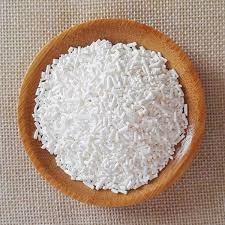
Understanding the Benefits of Ammonium Sulphate as a Fertilizer Option
The Benefits and Applications of Ammonium Sulphate Fertilizer
Ammonium sulphate fertilizer is a widely used nitrogenous fertilizer known for its effectiveness in promoting plant growth and enhancing agricultural productivity. It is an inorganic compound with the chemical formula (NH4)2SO4, which contains approximately 21% nitrogen and 24% sulfur by weight. This unique composition makes ammonium sulphate a highly valued product among farmers and agronomists. In this article, we will explore the benefits and applications of ammonium sulphate fertilizer, along with its role in sustainable agriculture.
Nutrient Composition
One of the most significant advantages of ammonium sulphate is its high nitrogen content. Nitrogen is a vital nutrient that plays a crucial role in various physiological processes within plants, including photosynthesis, protein synthesis, and overall growth. Plants require nitrogen in large quantities, particularly during the vegetative growth stage, making ammonium sulphate an ideal choice for crops such as corn, wheat, and leafy greens.
In addition to nitrogen, ammonium sulphate also provides a source of sulfur, another essential nutrient that is often overlooked. Sulfur is necessary for the synthesis of amino acids and enzymes and contributes to the formation of chlorophyll, which is vital for photosynthesis. The presence of sulfur in ammonium sulphate fertilizer ensures that crops receive a balanced supply of nutrients, leading to improved crop quality and yields.
Soil Health and pH Regulation
Ammonium sulphate has a significant impact on soil health. When applied to the soil, it lowers the pH, making it particularly beneficial in alkaline soils where nutrient availability is often limited. The acidifying effect of ammonium sulfate improves the solubility of essential nutrients such as phosphorus and iron, making them more accessible to plants. This is especially important in areas with high soil pH, where nutrient deficiencies can hinder crop performance.
Moreover, the use of ammonium sulphate can enhance microbial activity in the soil, promoting a healthy soil ecosystem. Increased microbial activity leads to better nutrient cycling and organic matter decomposition, which further improves soil structure and fertility.
ammonium sulphate fertilizer

Controlled Release and Environmental Considerations
One of the advantages of ammonium sulphate is its controlled release of nitrogen. Unlike some other nitrogen fertilizers that can lead to rapid nutrient leaching and runoff, ammonium sulphate provides a steady supply of nitrogen to plants. This controlled release minimizes the risk of environmental pollution and helps reduce the potential for groundwater contamination, making it an environmentally friendly option for farmers.
To enhance sustainability, farmers are encouraged to apply ammonium sulfate based on soil testing and crop nutrient requirements. This precision in application not only maximizes the use efficiency of the fertilizer but also minimizes wastage and potential environmental impacts.
Application Techniques
Ammonium sulphate can be applied in various ways, making it a versatile fertilizer option. It can be used as a pre-planting fertilizer incorporated into the soil, or it can be applied as a side-dressing during the growing season. Additionally, ammonium sulphate is suitable for use in fertigation, a technique where fertilizers are dissolved in irrigation water and directly supplied to the plants. This method enhances nutrient uptake and is particularly effective in high-value crops.
Farmers can also benefit from combining ammonium sulphate with other fertilizers to create customized nutrient blends tailored to specific crop needs. This approach allows for a more balanced nutrient supply and maximizes overall crop performance.
Conclusion
In conclusion, ammonium sulphate fertilizer is a potent tool for enhancing crop productivity while promoting soil health. Its high nitrogen and sulfur content, coupled with its ability to lower soil pH and improve nutrient availability, make it an essential component of modern agriculture. By using ammonium sulphate responsibly and in conjunction with good agronomic practices, farmers can achieve sustainable yields and contribute to global food security. As agriculture continues to face challenges related to climate change and soil degradation, the role of effective fertilizers like ammonium sulphate will be crucial in fostering resilient and productive farming systems.
-
Pure Sodium Dichloroisocyanurate Dihydrate | Powerful DisinfectantNewsAug.29,2025
-
Industrial Chemicals: Quality & Purity for Every IndustryNewsAug.28,2025
-
Nitrile Rubber Honoring Strict Production StandardsNewsAug.22,2025
-
Aspartame Ingredients Honoring Food Safety ValuesNewsAug.22,2025
-
Fertilizer for Balanced Plant NutritionNewsAug.22,2025
-
Cyanide Gold Processing with High Purity AdditivesNewsAug.22,2025
-
Formic Acid in Textile Dyeing ApplicationsNewsAug.22,2025
Hebei Tenger Chemical Technology Co., Ltd. focuses on the chemical industry and is committed to the export service of chemical raw materials.
-

view more DiethanolisopropanolamineIn the ever-growing field of chemical solutions, diethanolisopropanolamine (DEIPA) stands out as a versatile and important compound. Due to its unique chemical structure and properties, DEIPA is of interest to various industries including construction, personal care, and agriculture. -

view more TriisopropanolamineTriisopropanolamine (TIPA) alkanol amine substance, is a kind of alcohol amine compound with amino and alcohol hydroxyl, and because of its molecules contains both amino and hydroxyl. -

view more Tetramethyl Thiuram DisulfideTetramethyl thiuram disulfide, also known as TMTD, is a white to light-yellow powder with a distinct sulfur-like odor. It is soluble in organic solvents such as benzene, acetone, and ethyl acetate, making it highly versatile for use in different formulations. TMTD is known for its excellent vulcanization acceleration properties, which makes it a key ingredient in the production of rubber products. Additionally, it acts as an effective fungicide and bactericide, making it valuable in agricultural applications. Its high purity and stability ensure consistent performance, making it a preferred choice for manufacturers across various industries.





